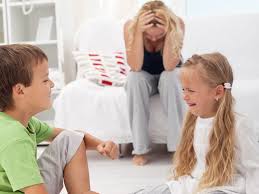 I
I As a caregiver you want nothing more than protect your child from pain, and perhaps even more in the case of losing a loved one. However, with 1 in every 5 children experiencing death by the age of 18 there is a chance as a parent you will be tasked with the responsibility of helping your child grieve. Questions arise like: What if what I say makes them feel worse? Will bringing it up hurt them more? What if I say the wrong thing and it makes them sad? How do I talk to them about it in a way they understand?
Having worked with children for several years and those that have lost loved ones, I want to start by
reassuring you that there is very little “wrong” you can say to them and secondly even if what you say in
hindsight doesn’t seem “just right” children are resilient and will not have lasting scars as a result. It is
important to not put too much pressure on yourself when talking to your grieving child as this often
interferes with being able to be present and in the moment with your child’s feelings. Additionally, they
may sense this anxiety and in wanting to protect you be less forthcoming with their thoughts and
feelings. These tips are intended to give you a foundation to help alleviate any fears you have in
addressing the topic of loss with your child.
Talk about YOUR feelings– You are the leader and role model for your child. They will learn and pick up
on how to grieve from you. If you refuse to talk about it and tip toe around the feeling of grief there is
chance they will not believe it is okay to express their feelings. Conversely if you talk openly about your
feelings surrounding the loss it sends the message that it is okay to share your feelings and to not be
embarrassed about them in addition to giving them the language to express what can often be hard to
put into words.
Wait– Be careful to not ask too many questions as this forces them to recall the loss on your terms not
theirs. If you share how you feel or tell them you are here to talk when they are ready and they don’t
right away that’s OK. Children all grieve in their unique way and just because they don’t talk about it
often doesn’t mean they aren’t processing it and coping with it. You can also ask for permission to talk
to them about what happened so they feel a sense of control.
Listen– When they do talk about it, fight the urge to reassure with comments like “everything will be
okay” or “don’t be scared”, rather try reflecting what they have to say as a statement. For example if your
child says “I really miss grandma, I wish she was here.” You can say “You really miss Grandma right now.”
There is nothing wrong with repeating what you hear your child saying as this helps them feel validated,
understood and heard. Contray to popular belief children open up more when parents reflect what they
say rather than ask questions.
Comfort– If you are an affectionate family, give the rub on the back or snuggle during or after the talk as
this comfort goes a long way in calming an anxious child. Comfort can also come in the form of sitting
next to your child in silence or engaging in a craft or activity side by side. Words are not the only way to
help your child through the grieving process, a loving rub on their back or genuine smile is meaningful.
IF you would like more information on how to help your grieving child feel free to call or email Cassandra Moore, LMFT at the CBT Institute of Southern California.


